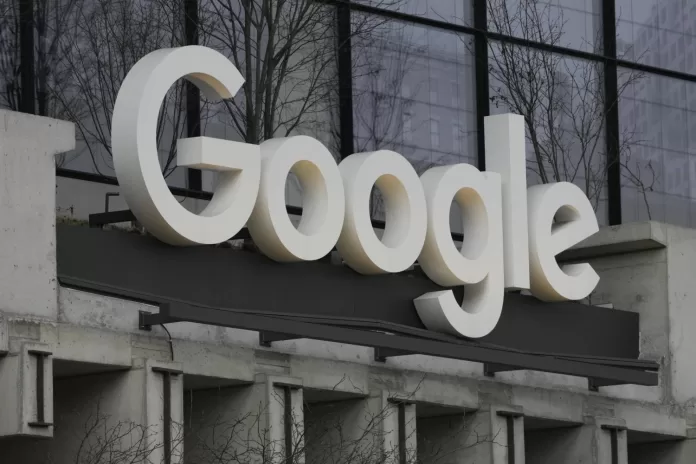The US government has called for a major shake-up of Google, requesting that a judge order the company to sell its widely used Chrome browser as part of a significant antitrust move.
Chrome, which Google launched in 2008, provides the search giant with data it then uses for targeting ads.
In a court filing late Wednesday, the US Department of Justice (DOJ) sought to address concerns over Google’s dominance in the search engine and mobile operating system markets.
The court found that Google violated Section 2 of the Sherman Act, which outlaws monopolies.
The DOJ said in a filing on Wednesday that forcing the company to get rid of Chrome would create a more equal playing field for search competitors.
Officials are urging the court to impose a ban on Google’s default search engine deals with smartphone makers and prevent the company from exploiting its Android mobile operating system.
Justice officials “chose to push a radical interventionist agenda,” Google president of global affairs Kent Walker said in response to the filing.
Calling for the breakup of Google marks a profound change by the US government’s regulators, which have largely left tech giants alone since failing to break up Microsoft two decades ago.
“To remedy these harms, the [Initial Proposed Final Judgment] requires Google to divest Chrome, which will permanently stop Google’s control of this critical search access point and allow rival search engines the ability to access the browser that for many users is a gateway to the internet,” the 23-page filing reads.
Additionally, the DOJ suggested limiting or prohibiting default agreements and “other revenue-sharing arrangements related to search and search-related products.” That would include Google’s search arrangements with Apple on the iPhone and Samsung on its mobiles devices, deals that cost the company billions of dollars a year in payouts.

READ ALSO: Travel Agents Urges NCAA to Stop Airlines From Selling Tickets In Foreign Currency
The DOJ also said that remedies should prevent Google from eliminating “emerging competitive threats through acquisitions, minority investments, or partnerships.” The DOJ said that the “proposed remedies run for a period of 10 years.”
The filing also says the search company should be required to provide a technical committee with a monthly report outlining any changes to its search text ads auction.
“The proposed remedies are designed to end Google’s unlawful practices and open up the market for rivals and new entrants to emerge,” the filing reads.
Search advertising accounted for $49.4 billion in revenue in parent company Alphabet’s third quarter, representing three-quarters of total ad sales in the period.
The DOJ’s request represents the agency’s most aggressive attempt to break up a tech company since its antitrust case against Microsoft, which reached a settlement in 2001.
Google is expected to make its recommendations in a filing next month and both sides will make their case at a hearing in April before US District Court Judge Amit Mehta.
Regardless of Judge Mehta’s eventual decision, Google is expected to appeal the ruling, prolonging the process for years and potentially leaving the final say to the US Supreme Court.
The case could also be upended by the arrival of President-elect Donald Trump to the White House in January.
His administration will likely replace the current team in charge of the DOJ’s antitrust division.
The newcomers could choose to carry on with the case, ask for a settlement with Google, or abandon the case altogether.
Trump has blown hot and cold in how to handle Google and the dominance of big tech companies.
He has accused the search engine of bias against conservative content, but has also signaled that a forced break up of the company would be too large a demand by the US government.
Determining how to address Google’s wrongs is the next stage of the landmark antitrust trial that saw the company in August ruled a monopoly by Judge Mehta.
Google has dismissed the idea of a breakup as “radical.”
Meanwhile, Adam Kovacevich, chief executive of industry trade group Chamber of Progress, said the government’s demands were “fantastical” and defied legal standards, instead calling for narrowly tailored remedies.
The trial, which concluded last year, scrutinized Google’s confidential agreements with smartphone manufacturers, including Apple.
These deals involve substantial payments to secure Google’s search engine as the default option on browsers, iPhones and other devices.
The judge determined that this arrangement provided Google with unparalleled access to user data, enabling it to develop its search engine into a globally dominant platform.
From this position, Google expanded its tech and data-gathering empire to include the Chrome browser, Maps and the Android smartphone operating system.
According to the judgment, Google controlled 90 percent of the US online search market in 2020, with an even higher share, 95 percent, on mobile devices.
The US government currently has five cases pending against big tech over antitrust concerns after the Biden administration adopted a tough stance on reining in the dominance of the companies.
If carried through by the Trump administration, the cases against Amazon, Meta, and Apple, as well as two against Google, could take years to litigate

